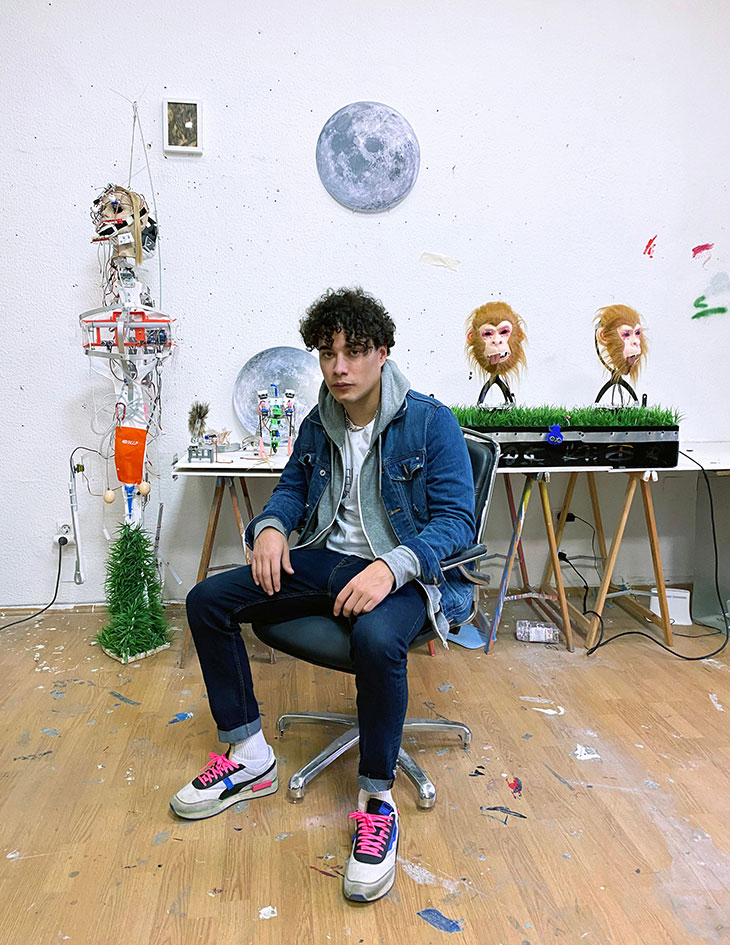
Artist Vuk Cuk challenges notions of identity and belonging with provocative installations questioning our daily fluctuations between reality and fantasy. We reunited with Vuk Cuk to talk about his recent work exploring robotic structures in art, smartphones and paradise.
DSCENE 014 IN PRINT $12 OR DIGITAL $4.90
Read more after the jump:
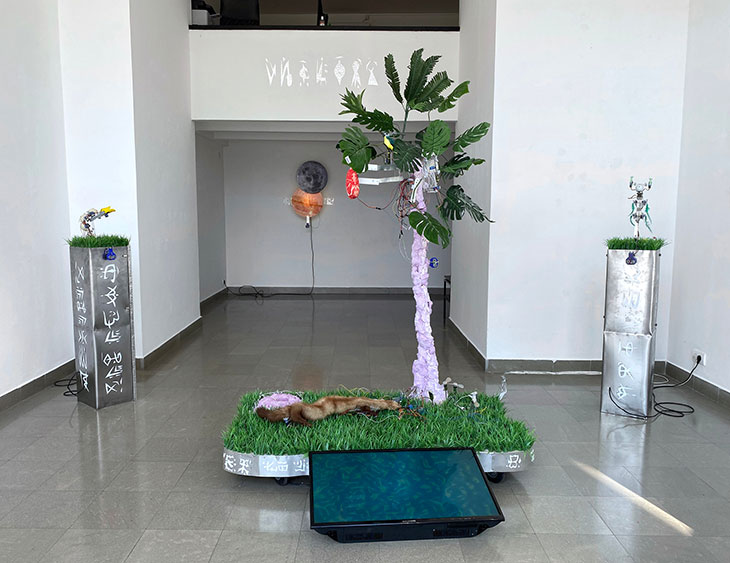
Do you see yourself as part of the internet generation of artists? Internet generation of humans I would say. It is such an important and integral part of our everyday lives, it has such an enormous power of shaping societies and life in general. I was born before it existed and I still can’t wrap my brain around it. How fast it progressed and how spontaneously it has found its way into our lives in such a short period of time. It is impressive and often overseen. It was conceived as a Utopian platform, an endless stream of knowledge and information that would elevate us as a species. Unfortunately, we can now see that it is probably not the case.
We live in a time when it is getting more difficult to position the self between reality and fantasy. But what is reality? Exactly, what is reality? With this enormous pool of information, we are bombarded on a daily basis and it is very hard to form an objective opinion. The truth is being very easily manipulated, and the word itself lost its original meaning nowadays. It became a personal thing. In that context, fantasy can be someone’s reality more than the world happening around them.
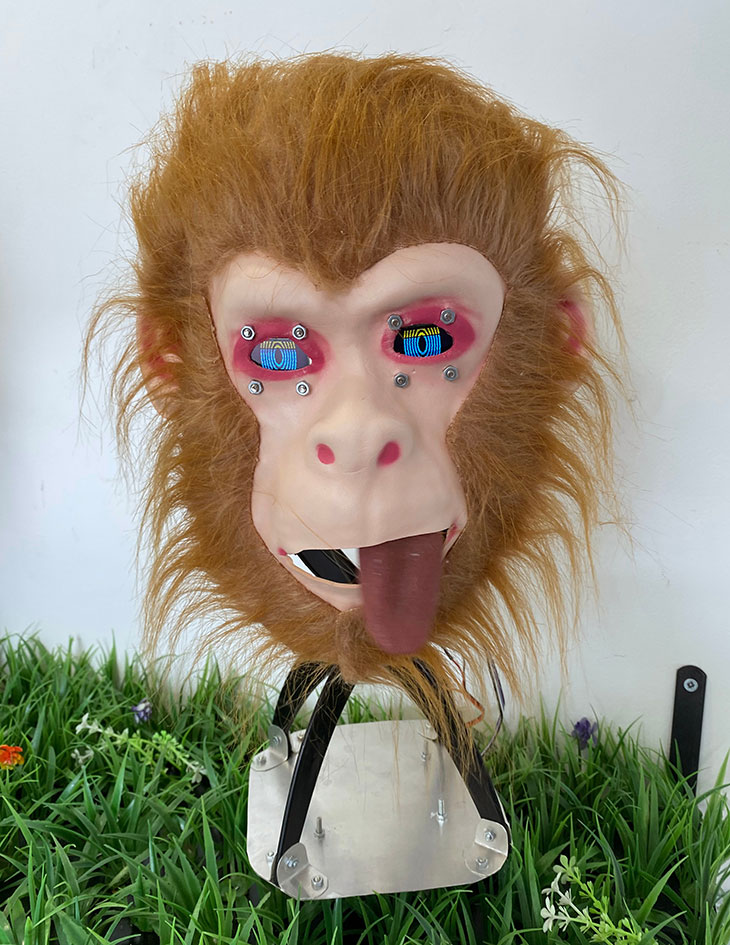
What are your thoughts on virtuality? Where would this sense of virtuality lead people? I remember reading a paper that argues that there is around 50% chance that we live in a computer simulation. What it says basically is that either civilization will become technologically capable of running “ancestral simulation” (which would be the ultimate goal of most scientists today), or it will become distinct before reaching that level. The hypothesis was made in 2003. Technology has developed enormously since then. We are using it to explain and discover our origins more and more and we continue to do so every day. Following that logic, with technology developing, we are either going towards confirming that we live inside a simulation (though, if we can make it, what tells us that someone else hasn’t already and that we are living inside it?), or that we are moving towards our distinction. It could also be the case that we were the first to do such a thing, but I think, mathematically, winning the lottery is much more probable.
Modernism brought another philosophy: creating paradise on Earth. I like to think that contemporary society is developing based on this principle.
How did you come to work with these robotic structures you make now? I think what leads us anywhere is the desire for something new. I notice that in my everyday artistic practice: I have a constant desire to explore unfamiliar territories, gain unknown skills, and keep myself in constant motion, I suppose. You build upon what you already made before, and it gets more and more complex. It is also about having fun in the process.
By adding movement, you give an object some sort of life; it can be observed as an organism, whether it is natural or artificial. These objects also raise a question of life in the future, these already introduced alterations (improvements?) of living and human forms, and generally try to create one setup that would make sense for the observer at a first glance, but would become more and more unusual as they are exploring it more thoroughly.
View this post on Instagram
Your recent works give the audience a feeling of being transported to another realm. Is the intent of your work to take the viewers to another world? Thank you for that ?.
I think artists should create their own worlds in regard to the one they are living in. I create installations that point out their own artificiality that is in relation to technological development. I imitate and alter a real-life model in a way that is still relatable but full of irregularities. You can recognize a lot of stuff inside of that system, but it is organized away from what we are used to seeing in reality. I wish for the viewer to be transported to another world even if it’s just for a second, but from the perspective of the world they came from.
Your work seems to evoke the idea of a “new paradise.” Do you believe in paradise? There is this interesting theory of art that states that the Renaissance artists created works that were windows you could look through and see paradise. Modernism brought another philosophy: creating paradise on Earth. I like to think that contemporary society is developing based on this principle. Rather than living “by the book” and waiting for some posthumous reward for our behavior, I prefer to strive for small portions of paradise on this side of life. This is not something constant or pre-planned, it is something that comes as a surprise or spontaneously, and that makes a big impact and influence on one’s life. If that is a “new paradise,” I’m glad for my art to be evolving around that idea.
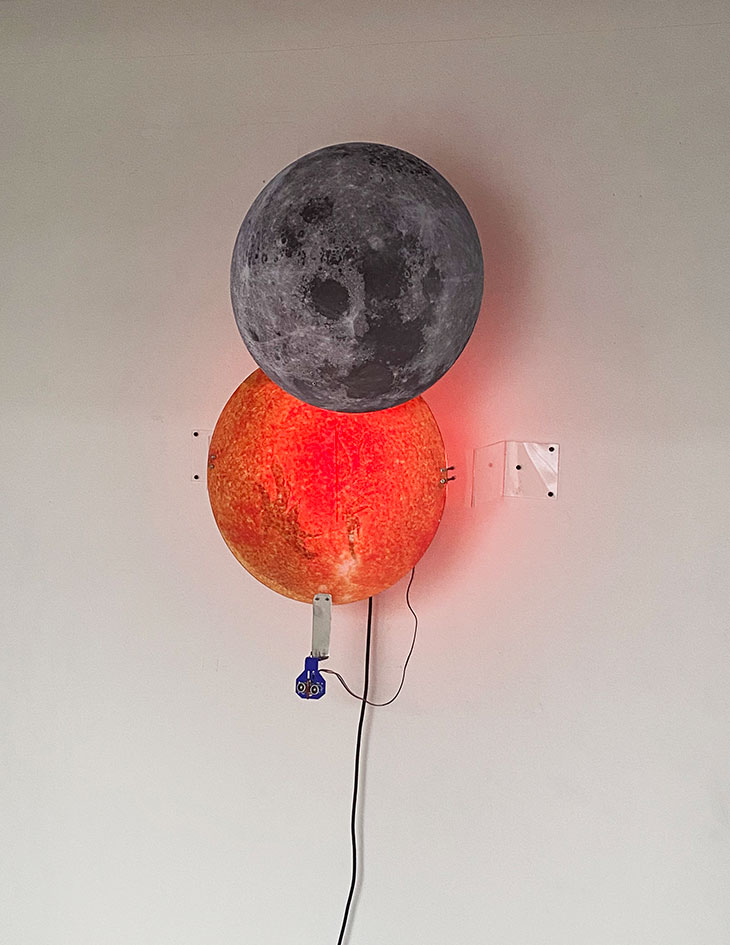
Should art be a model, rather than a metaphor for a better life? Is it even a metaphor for a better life? How do we define “better”? Is it more tolerant? Based on equality? A more progressive world? It’s hard to define this. I always thought artists were good at diagnosing where we are at the moment, not offering solutions.
On the other hand, if we observe it in that way, the diversity that is currently very much presented in the contemporary art world is something highly desirable in every sociological and personal model of living.
Technology is meant to make our lives easier and better, but it’s one of the main causes of planetary destruction. I love the fact we are technologically advancing, but we need to find a way not to destroy our only possible habitat in the process.
Art and science haven’t been this close since the Renaissance. Do you follow science? I read a bunch of stuff on a daily basis, but I am most interested in explorations on life outside of our planet, the creation of artificial life on this planet, AI, and robotic development (as a whole and as a separate field).
Scientists are very close to artists like you today, they sometimes go that far into abstraction. Your work is very much about what’s going on now and the possibilities we have, but also about the risk we create for ourselves. How does your work reflect where we are now and where we need to go? Yes, it is a lot about that. What is obvious is that we are kind of chopping the branch we are sitting on, the way we’re going. Technology is meant to make our lives easier and better, but it’s one of the main causes of planetary destruction. I love the fact we are technologically advancing, but we need to find a way not to destroy our only possible habitat in the process. Through my art, I try to use absurd objects, ones that probably shouldn’t exist, yet are overproduced, cheap objects, globally sold, and are one of the main polluters of our environment. On the other hand, I take those objects, change their intended habitat, and “give them life” using easily affordable technology that didn’t exist just a while back.
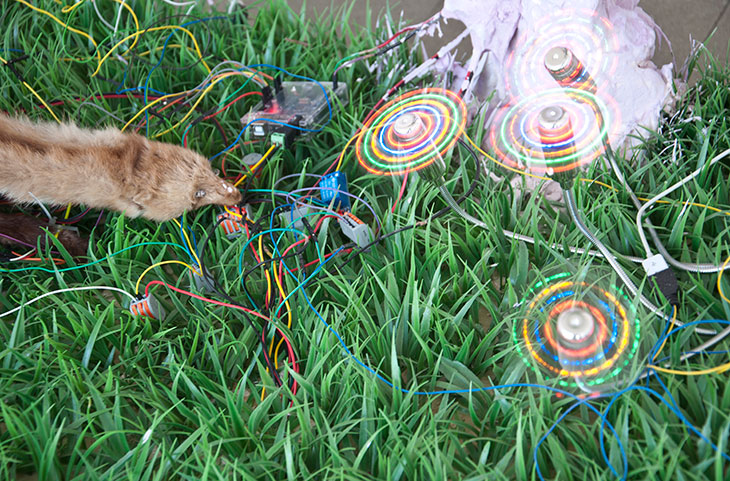
In the past decade, AI’s success made an impact in almost every field out there. It changed the way we interact; the way we live our lives. What do you think are the bigger effects? I guess AI, for now, is just advanced statistics, but it’s growing rapidly. When you think about what it can be used for, and how beneficial it can be, and then you get an ad on your phone about the product you just mentioned out loud, it’s a shame. I truly think we are currently living in the baroque of late capitalism and consumerism, and that things need to change in the direction of creating a fair and more tolerant world based on equality.
Smartphones have almost become body parts. How much time do you spend on your phone? A fair amount. I read news, articles, discover art, Instagram, etc. I order stuff from China for my artwork…plus games when I am in-between places I need to be, with some extra time.
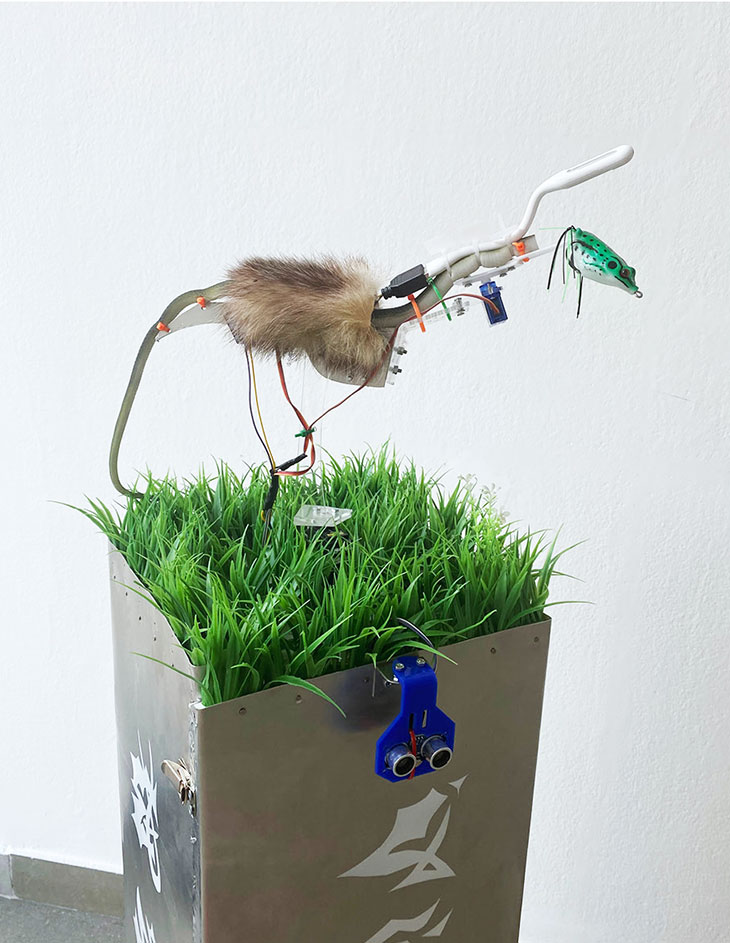
We believe that technology gives us access to the world, but at the same time, it’s the opposite. It’s closing the door to direct perception and communication with our own environment. Yeah in general, as I said, it was a Utopian concept, so full of hope—as every beginning of something new is. There are so many inventions and platforms that made our lives easier and better organized. But also, we can see how much manipulation can be hidden behind it all. Truth is being twisted and formed in a way that serves certain interest groups, and you have to be reserved regarding any mainstream news you see. It also created a free space and networking channels for hate groups and conspiracy theorists to spread hatred and nonsense.
What do you think of the Instagram culture, where artworks are shared and consumed online without much contextual information? Regarding art, I use Instagram a lot to discover what is going on around the world and virtually see exhibitions. I believe it will never replace real-life feelings you have when you go and visit the show, but it’s better to see it in photos than not see it at all. It happened to me a few times, to see the exhibition on IG, really like it, buy a plane ticket, and go see the show in person. It is also very interesting to observe how exhibitions look in person compared to how they look on IG.
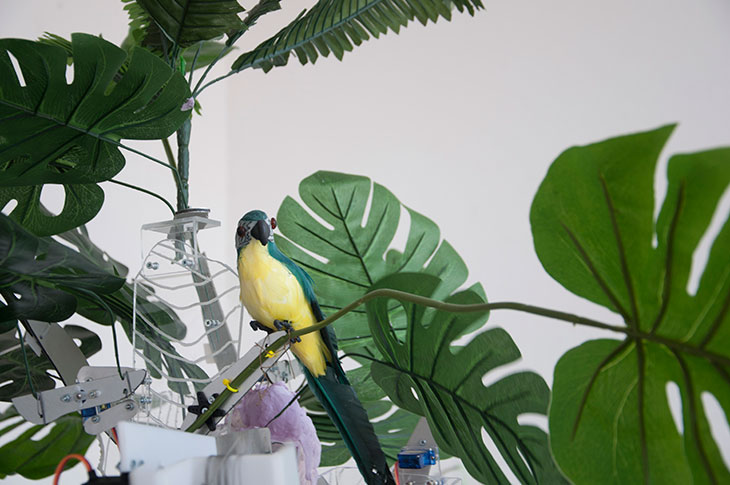
Your objects are mostly made from the random things you’ve ordered from China. What are your thoughts on the world’s current state of extreme capitalism? Things are now readily available and nearly anything can be purchased. Yes, that is also one of the important facts I try to talk about through my art. The level and absurdity of objects being serially created are really insane. For example, today I ordered seven plastic avocados. The real-life scale looks identical to the real thing. I paid three euros in total for them. It’s truly incomprehensible to me: to send seven plastic objects (it is not a small package) that imitate the real object very well, all across the world, charge three euros for it, and still have a profit big enough to keep doing it. Imagine the scale of plastic avocado production, and the amount of them sold. Who needs that many plastic avocados and why?
In your works, you also use a lot of artificial plants. What is your relationship with nature? They are the biggest level of absurdity if we follow-up on the previous question. Fake plants. Like, you have plants that create oxygen, right? They keep us alive. We take plastic, the biggest polluter in the whole world, and make a replica of them… again, very good quality (uglier of course); it’s not very easy to distinguish them from the real thing. Not even cheap to be honest (those great copies). And what for? So that we don’t need to water them and keep them alive? I don’t get it honestly.
How do your artistic approach and work spread through your way of life? They are the same thing, honestly.
View this post on Instagram
Your latest show is titled Everything is going to be alright. Do you really believe that? Ha-ha, I truly don’t know. It’s what we all keep repeating to ourselves though. The global pandemic was good for the world in a way of realizing how much we already have and we weren’t realizing it. Don’t get me wrong, I will never be up for settling down and not chasing progress, it just needs to be done in a smart way, and not recklessly. I really miss going to the seaside, and I truly hope everything is going to be alright, and that I will be able to go next summer (or this winter, but much less likely).
If you had a second life, what living form on earth would you choose? Something with wings. That’s so Renaissance ha-ha.
Can you describe the perfect design for the future? There is no perfect design. Or maybe there is, and we will all die when we discover it.
Will art matter in the future? And has it ever mattered? It has always mattered, and it will always matter. Much more than we might realize.
Interview by Katarina Djoric.
Keep up with Vuk Cuk on www.vukcuk.com.
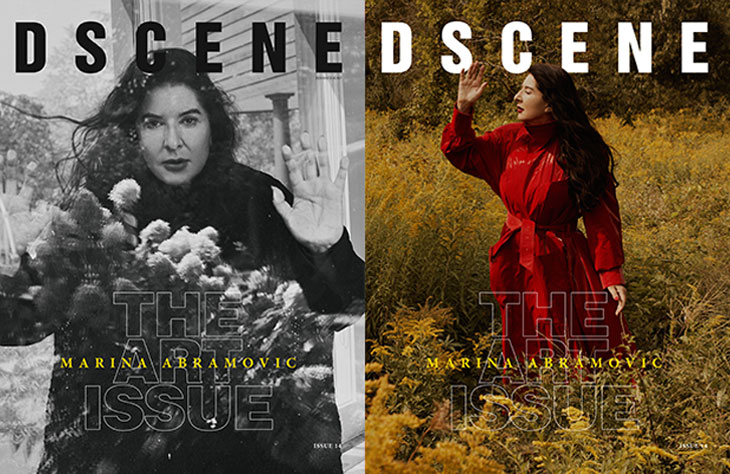
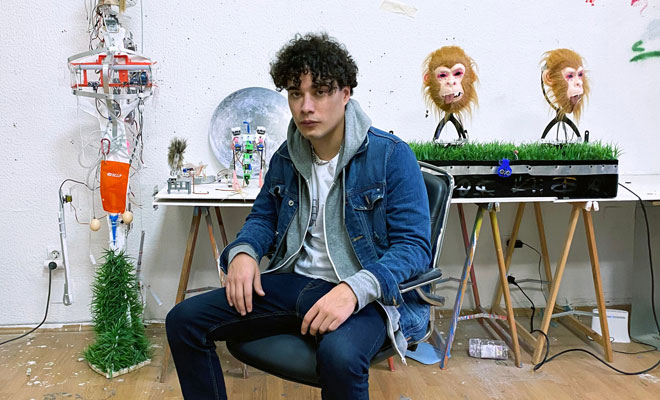













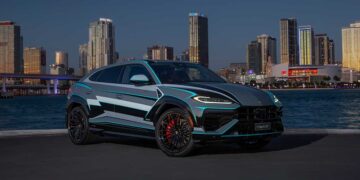
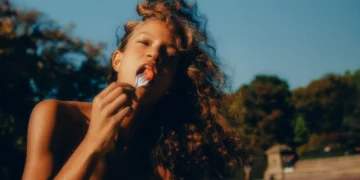
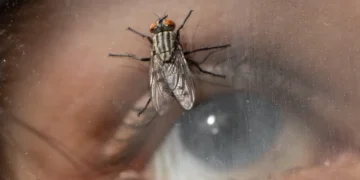
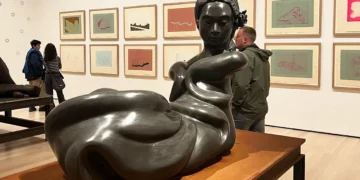
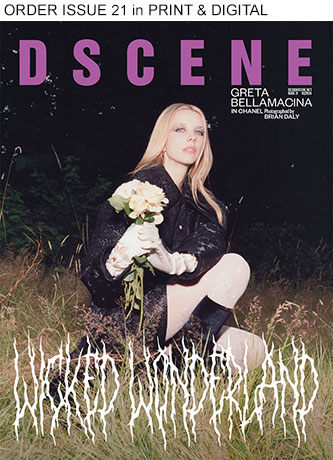

Comments 1